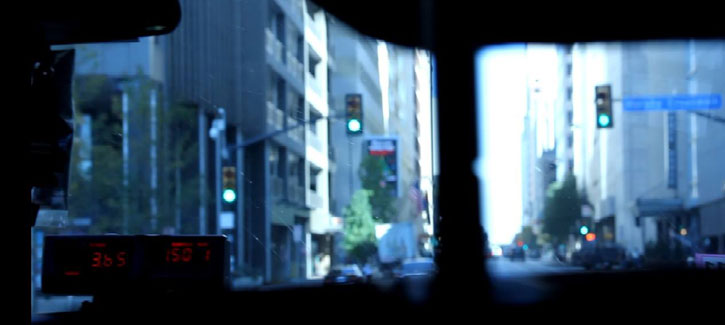
Movie still. (Courtesy The Price of Honor)
A Doc Films event sheds light on an international human rights issue on American shores.
The Price of Honor, a documentary directed by Xoel Pamos and Neena Nejad, opens in grim and austere fashion. The audio of a desperate 911 call plays over a dark screen uninterrupted for several uncomfortable minutes. The voices are those of teenage sisters Amina and Sarah Said in what we will soon learn are their dying moments. They were allegedly shot by their father, Yaser Said, in the back of his cab in 2008, a crime for which he is still at large.
The film was screened earlier this month at Max Palevsky Cinema as part of an event cohosted by Doc Films and UNICEF. Pamos and Nejad were present for a Q&A on the issue at the heart of the film: honor killings.
As the film explains, honor killings are communally approved murders, usually of young women, by a close family member or acquaintance in response to perceived sexual misconduct or other “shameful” activity. Women have been killed for dating men or losing their virginity, for refusing arranged marriages or seeking divorce, for being the victims of rape. Honor killings are most prevalent in North African and Middle Eastern countries and the diasporic communities of those regions around the world. The Saids were just such a case—Yaser was one of five brothers who immigrated to Texas from Egypt. He married an American woman and had three children: Amina, Sarah, and a son named Islam, all born and raised in Texas.
While they have received more media attention in the past few years, honor killings are still less well known than some other human rights issues. Pamos, an actor and director who before this film was primarily active in his native Spain, was not aware of the phenomenon until shortly before the project began; it was explained to him by his directing partner Nejad, whose parents are Iranian. They had been planning to make a film on women’s rights and eventually settled on honor killings and then on the Said case. “Originally, we were going to do something more globally,” said Pamos during the Q&A, “but as we got into the story of Amina and Sarah … the fact that Yaser Said is still out there, it kind of only made sense to tell their story.”
Using firsthand testimony from friends and relatives and documents—police records, personal emails, text messages, and home videos—the film briefly recounts the girls’ early lives before delving into a detailed chronicle of the events leading up to their deaths. Interviews maintain the pathos, while the silent text of the documents builds dread that is hard to shake. Yaser was alleged to have abused the girls when they were younger, but his controlling behavior was not fully apparent until they started dating American boys. Yaser attempted to marry the girls off in Egypt; when this failed, he allegedly shot them. Yaser is among the top 10 on the FBI’s Most Wanted list.
The crowd at Doc, a small but diverse group that included social workers, Muslims, and interested students, asked the directors difficult and sometimes combative questions during the Q&A. A few in the audience wondered about the “honor killing” label used by the filmmakers, suggesting that it unfairly singled out Muslim communities for broader crimes against women that happen in all cultures. Another sparred with Pamos over Pamos’s assertion that the girls’ mother was tacitly responsible for their deaths because she failed to keep them out of harm’s way.
Both directors said they were encouraged by the film’s reception—it has garnered praise from human rights groups and attracted great interest on social media—but are wary of the deeply ingrained cultural mind-sets that keep such atrocities in common practice. “Growing up, friends say, ‘Oh my god my dad would kill me if he found out,’ but for me, that was a reality,” said Nejad in response to a question about how to tackle the issue in the future. “At a young age, I knew if I ever did anything that was considered dishonorable I would just be better off dead. So it’s a mentality that’s so ingrained in us; how do we change that? And honestly I don’t know.”
